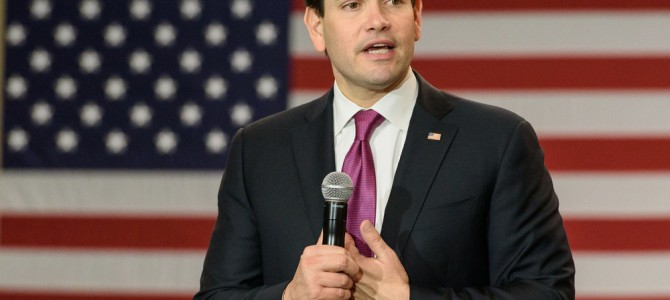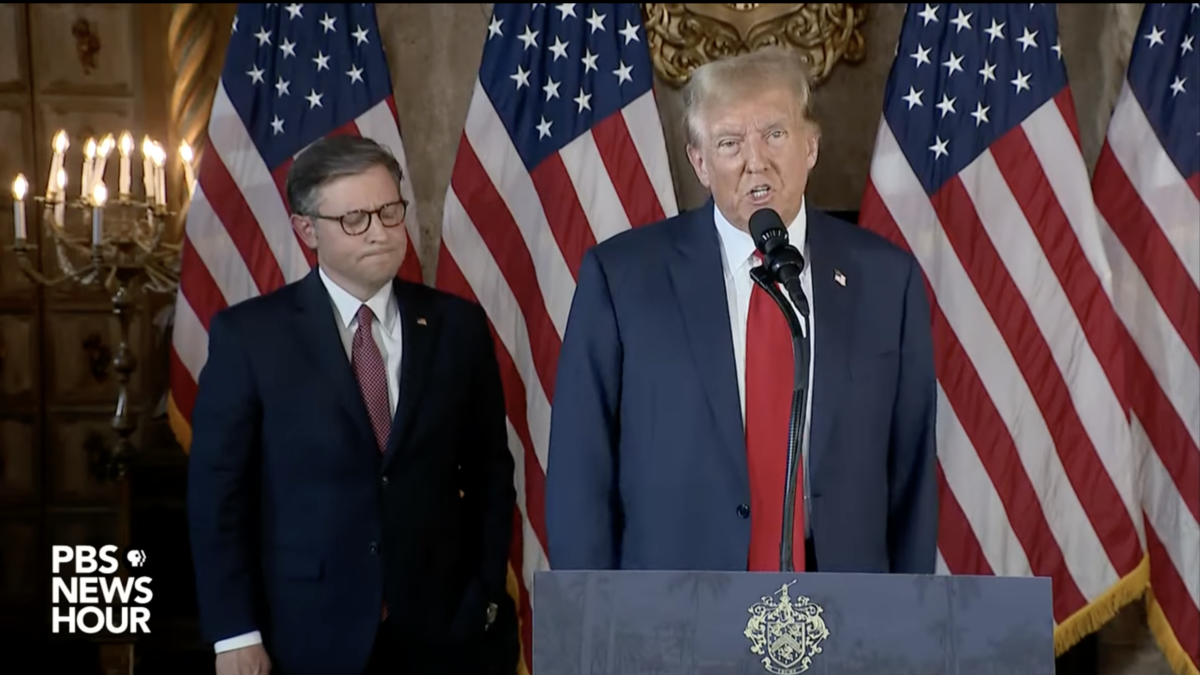
He should have done better. On paper, Marco Rubio looks like a consensus candidate, the perfect sort of Republican to put up against Hillary Clinton. On the trail, he is eloquent and has had a charismatic run over the past few weeks. The good endorsements have all gone his way. The establishment lane has been cleared of all but John Kasich. The donor class was heading solidly in his direction. The prediction markets saw him as the consensus not-Trump in the race. And yet, it is Ted Cruz who walks away from the weekend with the largest number of delegates.
Rubio’s win in Puerto Rico is small consolation for the fact that he is looking up at what appears to be an insurmountable challenge in the delegate stakes. He is lagging in Florida and will likely lose his home state. Trump requires just 59 percent of the remaining delegates, Cruz 64 percent – but Rubio 74 percent, which means his only hope is a brokered convention, and that is at best a shoot the moon strategy.
Some supporters of Rubio are already engaging in recriminations over the reason for his failure to launch. But it seems rather obvious: he is not the candidate suited for the moment, with a message for the times and a campaign operation up to the challenge. His approach was built on the assumptions in the GOP post-2012 autopsy, and his data-based analytics were used more for messaging than individualized contact.
In their duel for second place, Cruz and Rubio had similarly sophisticated targeting operations, but put to very different uses. While Cruz’s analysts saw that as the first step toward disaggregating the electorate into segments that could receive targeted communication—separating ‘timid traditionalists’ from ‘stoic traditionalists,’ for example—Rubio had all but abandoned individualized contact by Super Tuesday. Throughout the year, the campaign had made only symbolic investments in field operations—enough to convince the press and local party figures that he was taking seriously grassroots interaction but not enough to dramatically shape the electorate through them. ‘All this is not to say that door knocking doesn’t work,’ concluded a memo that Tranter and Stobie released on their website in late December. ‘But it like every other tactic must only be applied in support of a strategy designed to the realities that each unique campaign must face.’ Implied was that Rubio could win states only by making significant inroads in other candidates’ bases through persuasion, not through the incremental gains that come with turnout.
Should Rubio continue on this path, in my view it’s simply because he was never able to recover from the fact that he is viewed as out of step with much of his party on the issue of immigration. Navigating the field with the drag of the Gang of Eight was always going to be difficult. (As recrimination pieces go, it’s funny which word doesn’t appear anywhere in this piece. Go ahead, search for it, I’ll wait.) His natural political abilities notwithstanding, this was the real reason he was poorly positioned from the start.
The slim hope that a brokered convention would give Rubio the nomination is a grasping at straws. He is not going to be the leader in the delegate count, and Cruz is correct that taking the nomination away from the leading candidate would spark ‘a manifest revolt.‘ And so Cruz continues to bolster his case that he is the only candidate with the capacity to beat Trump, and beat him before the convention.
His campaign has made a big deal out of looking to take on Rubio in Florida – though the voters Cruz gets would likely come more from Trump. Whether Rubio gets out before or after his likely Florida loss, Cruz has a mathematical chance to get to the necessary number of delegates depending on his performance in a few key states. Missouri and North Carolina could prove very influential on the 15th.
There is an opening here, however, for Rubio to get out in a manner that would cement his political future and potentially abound to his credit regardless of what happens in 2016. If he were to approach Cruz with the possibility of a unity ticket prior to Florida, he would avoid the ignominy of losing his home state while seeming magnanimous in putting party and country before his own ambitions.
Even if a Cruz-Rubio ticket (the Republican version of Gore-Clinton) went on to lose to Donald Trump or Hillary Clinton, he would have the goodwill from conservatives and moderates alike for such a stance, putting himself in a much better position for a gubernatorial run and likely the leading position for a 2020 nomination.
This is unlikely to happen, of course – the race is fluid and Rubio’s team is projecting confidence that they can overcome the odds in Florida, arguing that Trump will underperform in a closed primary. But if Rubio is defeated there soundly, the best Republican politician of his generation could be headed for a sad exit from the 2016 field.









